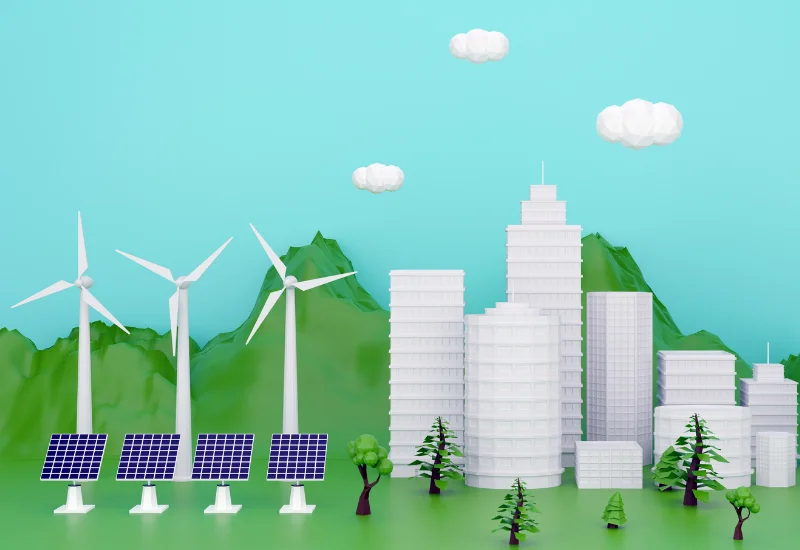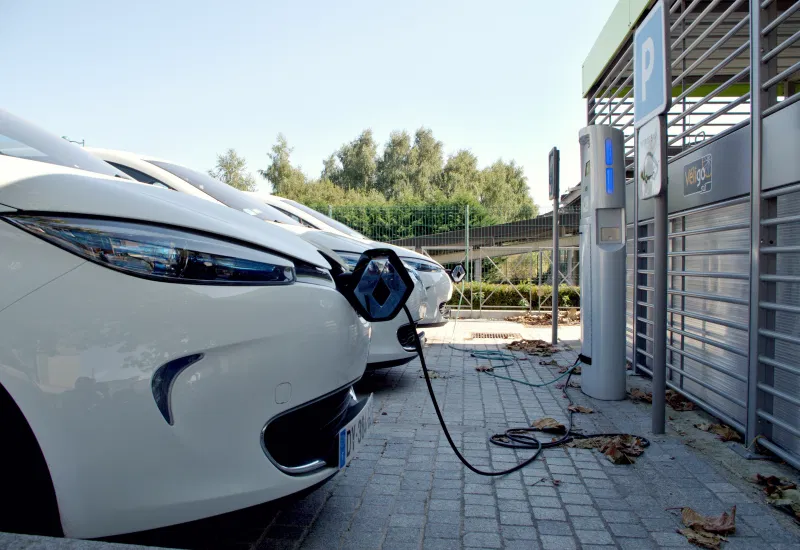
Jan 14, 2026
Written by Jill - Written: May 30, 2022 - Last updated: February 16, 2026

Recent research has shown the earth could possibly be warmed up by 2 degrees Celsius as early as five years from now. That’s the limit set by the Paris Agreement.
In addition to disastrous consequences for our earth, this poses major risks for business, according to the World Economic Forum. Extreme weather, drought and resource scarcity can disrupt supply chains, reduce demand for goods and services, and affect the availability and prices of materials.
It’s not too late to turn the tide. Businesses can help, too, but many don’t know what they can do to help fight global warming. Here are eight actions all businesses can adopt to do their part.
According to an American study, energy consumption in buildings is responsible for more than one third of all CO2 emissions. By reducing your energy consumption you can make a significant contribution to the fight against climate change.
What can companies do to reduce their energy consumption?
By paying more attention to their daily routines, companies can easily reduce their impact on the climate. On top of that, all these small adjustments result in significant cost savings.
All businesses produce waste - whether it is the industrial waste of a large factory or the paper waste of a small firm.
Some ways to reduce waste include:
Notably in the area of going paperless, there is still room for improvement. In recent years, many companies have taken big steps, but most offices still have a long way to go. Encourage employees not to print emails and documents, and offer them the option of sending documents to their personal devices.
Instead of paper records or archives, opt for a digital alternative. There are numerous apps that can help you. It is possible, for instance, to manage your visitors completely digitally. This doesn’t just soothe the climate: it also helps you keep your visitors’ data safe, and helps you save time as all data is immediately stored in the cloud.
What is digital visitor management?.
Read how you can get started with a digital visitor management system in less than 30 minutes.

According to Our World In Data, transportation is responsible for one-fifth of CO2 emissions worldwide. Three quarters of these emissions come from road traffic, especially passenger transport.
Companies therefore increasingly opt for a greener fleet. By investing in electric cars for their employees, they can make a significant contribution for climate. A Belgian study calculated that electrifying company fleets will halve CO2 emissions from road traffic by 2030 and improve air quality in cities.
Companies can also encourage their employees to take public transport to work or to carpool with colleagues. This way, their indirect CO2 emissions, and thus their impact on climate, can be significantly reduced.
In 2020, global carbon emissions dropped for the first time in decades. The reason was of course the COVID-19 pandemic. Because of the lockdowns, there were hardly any planes in the air and cars on the road. A study in the scientific journal Nature calculated that the drop in carbon emissions for that year was 6.4 percent.
In a digitalized world companies have plenty of opportunities to make use of this knowledge. Retail, administration, healthcare or technology: work has changed in all industries. Employees are increasingly working online. Meetings can easily be conducted over the internet. And companies are increasingly organizing events online.
Telecommuting holds many benefits:

More and more people today are opting for renewable energy. Companies may also find this an interesting solution.
They can install solar panels or wind turbines on their grounds and use the generated energy to power their buildings. For smaller companies, this may however not be feasible. But there are options for them, too: they can opt for energy suppliers who offer 100 percent renewable energy.
As we already wrote, transportation is one of the largest sources of carbon emissions. And business travel is a major contribrutor.
Travel is an important part of doing business. But attending a conference or meeting potential clients abroad inevitably impacts climate.
Fortunately, thanks to today’s technology, alternatives are countless. Instead of going to a conference, you may schedule a webinar and invite your customers online. You can also communicate with business partners or customers via video chat to avoid a long drive or flight.
If a trip is nonetheless inevitable, remember traveling by train is up to 90 percent more eco-friendly than traveling by plane.
Companies can have an even greater impact by telling their employees and customers how their actions affect climate change. By encouraging them to make good choices themselves, carbon emissions can be reduced further.
A few examples:
When you have done everything you can to reduce your own carbon footprint, it’s time to look at external factors as well. By making smart purchases and joining forces with sustainable suppliers, you can reduce your impact on climate even further.
Suppliers are increasingly offering eco-friendly products and services and working towards sustainability. By paying attention to this, ecology remains a priority throughout the supply chain.
At Vizito, we are proud to be a sustainable supplier to many companies. As this is a big issue for us, these are some of the initiatives Vizito is taking to reduce its carbon footprint:
To get a feel of how a modern visitor management system can help your business grow, try out Vizito for free during a 14-day trial or chat with us to discuss how Vizito can help you improve your reception.
Got more questions? These are the 7 most common questions about digital visitor management – and our answers.